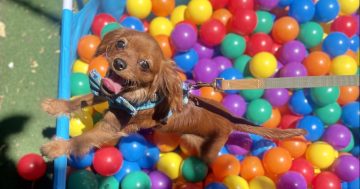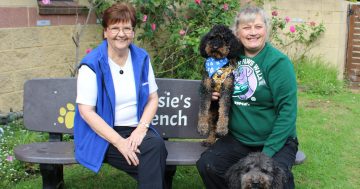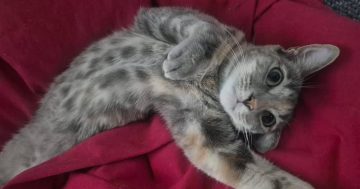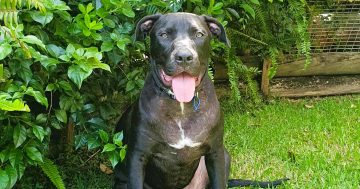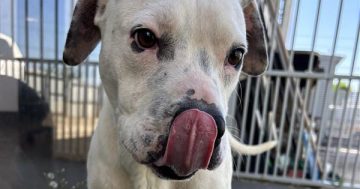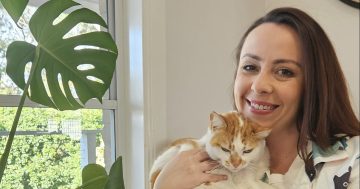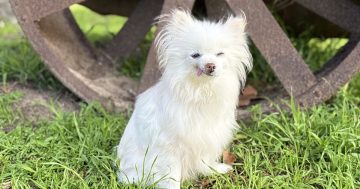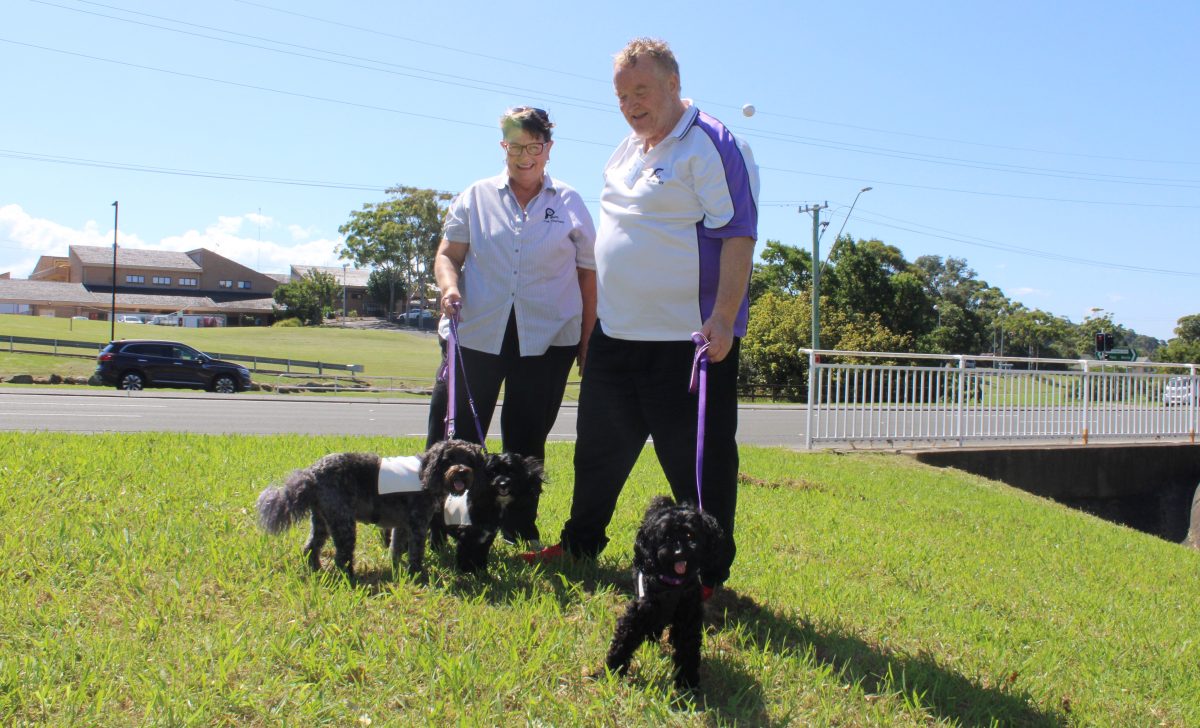
Helene and Nigel with therapy dogs Tootsie, Molly and Rosie outside Shellharbour Hospital. Photo: Keeli Royle.
Furry friends are helping give people in hospitals across the region some relief from the stress of their situations by providing comfort, joy and connection as part of PAWS Pet Therapy visits.
After four decades working in aged care, Helene Horton was looking for a way to occupy her time in retirement and after some research, quickly realised that her schnauzer cross toy poodle Tootsie had the perfect temperament for a therapy dog.
“Tootsie has always been, ever since a puppy, a beautiful, placid, loving dog,” Helene said.
“She hasn’t got an irritable bone in her body; she’s just super cool, so I knew she’d be good.”
For the past three years, Helene, Tootsie and later Molly, have visited patients around the Illawarra in some of the most devastating situations.
But although the hospital environment can be emotional and tough, Helene has seen how beneficial the visits can be, for example, when she received feedback from a family member in Bulli Hospital’s palliative care unit.
“Her husband was almost unconscious and at the end of his life and he said, ‘Pat’ and he patted her and then he said, ‘Goodbye’ and that was the last thing he said, he died that night,” Helene said.
“She was so thankful because he hadn’t been speaking and it makes such a difference in those circumstances.”
It’s not just end-of-life care where they’ve made a difference, with the pooches making visits to rehabilitation facilities, aged care, schools, libraries and even visiting hospital staff in emergency departments.
“When I see the reaction of a lot of the people, it really brings a tear to my eye and really makes my heart swell up,” Helene said.
For Nigel Jones, who brings his cavoodle Rosie to Shellharbour Hospital’s mental health unit once a fortnight, it’s the joy the visit brings that is so meaningful.
“She can do five tricks, maximum, but when her tail wags and she blows you a kiss it just cracks people up,” Nigel said.
“I think there’s an affinity with dogs; there’s that initial connection with them and that forms quite quickly because they’re not a threat and they feel safe with them and that’s what it’s all about.”
He said the visits also allowed bonds to form between people as they had a relatable thing to talk about.
“It’s also a form of connection, you can talk about the dog rather than ‘How’s your day’ or ‘How are you going’ which is an inappropriate question in a lot of scenarios,” Nigel said.
“I think if you even take your dog down the street and you bump into somebody else that has a dog immediately you start talking; even in the community it’s a form of connection.”
That connection can also help improve conditions in aged care settings, by giving patients the opportunity to share their own experience.
“Quite often they like to reminisce about the dogs they’ve had and it’s really good mentally for a lot of the aged care people to do that,” Helene said.
“It’s very beneficial to them.”
Throughout the past 11 years, PAWS Pet Therapy has grown from having just over a dozen volunteer teams of people and their pet in Picton to providing the service across the state and country, with almost 500 teams now involved.
But in the Illawarra area they’re seeking more as demand continues to rise.
“There’s a real need out there,” Helene said. “We get so many calls for teams that she just can’t fill so we’re always looking for volunteers.”
Regardless of a pet’s size or breed, PAWS is searching for volunteers to undergo its program and experience the difference therapy dogs can make firsthand.
“Even if it’s a small amount of time that people give,” Nigel said, “you will see the benefit.”
To find out more visit the PAWS Pet Therapy website.









